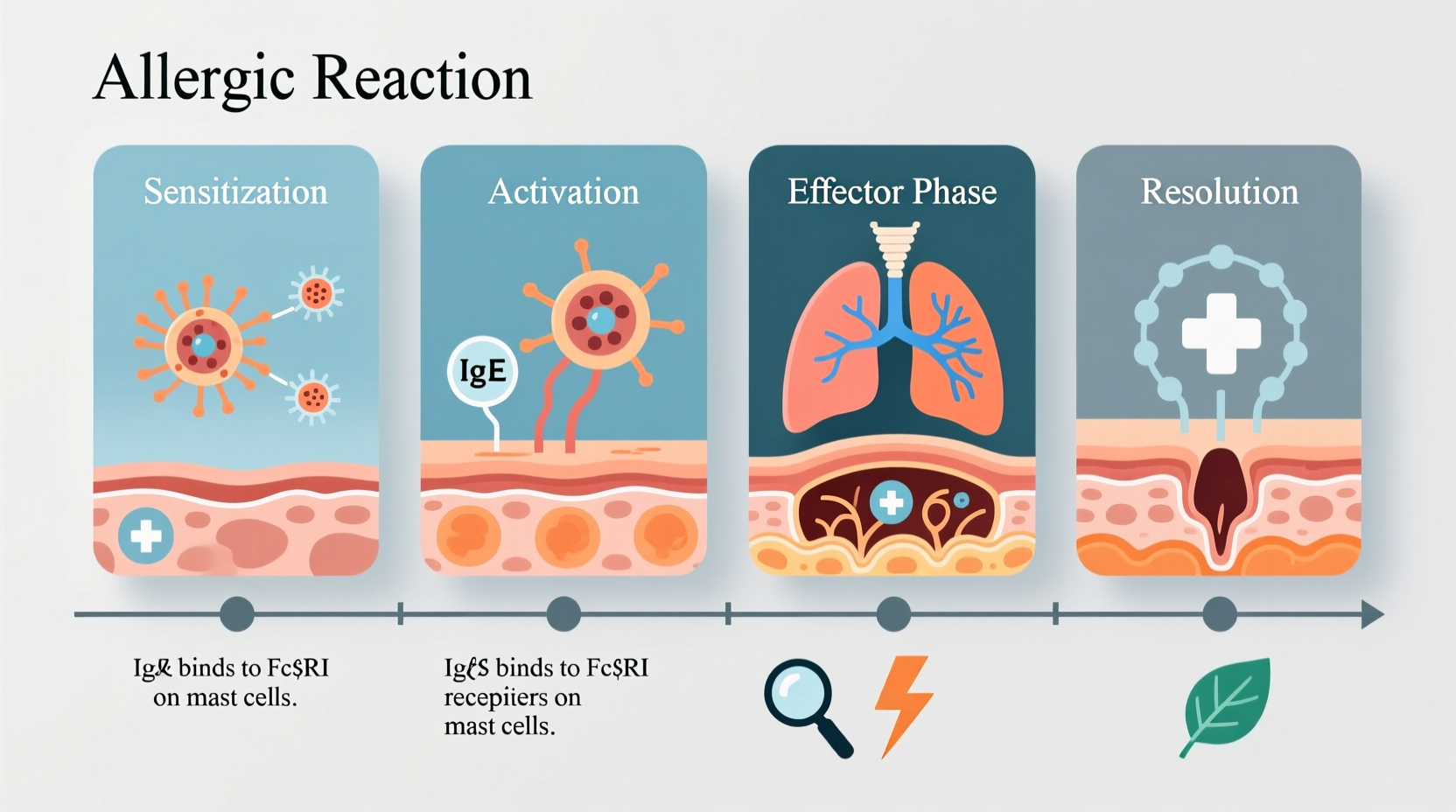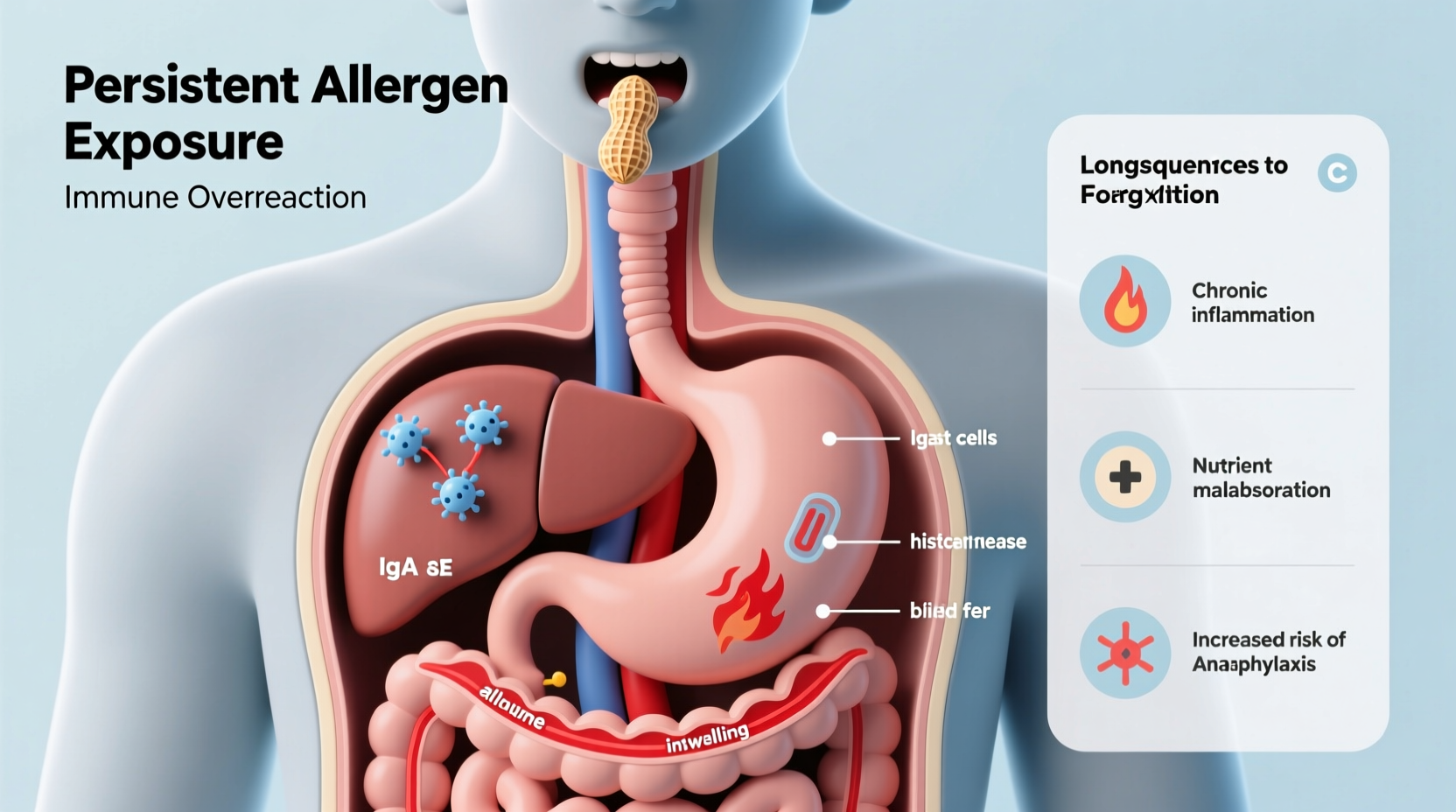The Immediate Danger: Understanding Allergic Reaction Progression
When you consume a food you're allergic to, your immune system mistakenly identifies proteins in that food as harmful invaders. This triggers an immediate cascade of biological responses:
| Reaction Stage | Timeframe | Physiological Changes | Visible Symptoms |
|---|---|---|---|
| Initial Exposure | Minutes | IgE antibodies bind to mast cells | Itching, tingling mouth |
| Immune Activation | 5-30 minutes | Mast cells release histamine | Hives, swelling, nausea |
| Critical Response | 30-60 minutes | Systemic inflammation begins | Difficulty breathing, dizziness |
| Anaphylaxis Threshold | 60+ minutes | Cardiovascular collapse risk | Loss of consciousness, shock |
According to the American College of Allergy, Asthma, and Immunology, approximately 40% of people with food allergies experience a severe reaction requiring emergency intervention. Each subsequent exposure carries increased risk as your immune system becomes more sensitized to the allergen.

Why Repeated Exposure Worsens Your Condition
Your immune system doesn't "get used to" allergens through repeated exposure—it becomes increasingly vigilant. This biological process, called sensitization, explains why:
- Reaction thresholds lower with each exposure (smaller amounts trigger responses)
- Symptoms intensify progressively (mild itching becomes anaphylaxis)
- Latent periods between exposure and reaction shorten
- New symptoms may emerge with subsequent reactions
The National Institute of Allergy and Infectious Diseases confirms that 35% of individuals with food allergies report their most severe reaction occurring after previously tolerating small amounts of the allergen. This dangerous misconception—that you can "build tolerance"—leads many to continue consuming allergenic foods with potentially fatal consequences.
Long-Term Health Consequences of Ignoring Food Allergies
Beyond immediate reactions, chronic exposure to food allergens causes significant damage:
Eosinophilic Esophagitis (EoE)
Persistent exposure to food allergens triggers eosinophil accumulation in the esophagus, causing:
- Chronic inflammation and tissue scarring
- Esophageal narrowing requiring dilation procedures
- Permanent swallowing difficulties
The Centers for Disease Control and Prevention reports a 250% increase in EoE diagnoses over the past decade, strongly correlated with continued allergen exposure.
Gut Microbiome Disruption
Repeated allergic reactions damage the intestinal lining, leading to:
- Increased intestinal permeability ("leaky gut")
- Chronic inflammation throughout the digestive tract
- Malabsorption of critical nutrients
When to Seek Immediate Medical Attention
Recognize these critical warning signs that require emergency care:
| Symptom Category | Warning Signs | Action Required |
|---|---|---|
| Respiratory | Wheezing, throat tightness, difficulty speaking | Use epinephrine immediately, call 911 |
| Cardiovascular | Pale skin, weak pulse, dizziness | Lie down, elevate legs, call 911 |
| Gastrointestinal | Severe vomiting, bloody stools | Seek emergency care within 1 hour |
| Cutaneous | Rapidly spreading hives, facial swelling | Use epinephrine if available, seek care |
Food Allergy Research & Education (FARE) emphasizes that delaying epinephrine administration during anaphylaxis increases fatality risk by 300%. Never rely solely on antihistamines for severe reactions.
Creating Your Allergy Management Plan
Effective long-term management requires these critical steps:
- Complete allergen elimination from your diet under medical supervision
- Carry epinephrine auto-injectors at all times (replace before expiration)
- Develop a written emergency action plan with your allergist
- Wear medical identification specifying your allergies
- Schedule regular follow-ups with a board-certified allergist
Research published in the Journal of Allergy and Clinical Immunology shows that patients who strictly avoid allergens and maintain regular specialist care reduce severe reaction risk by 78% compared to those who continue occasional exposure.
Practical Strategies for Daily Allergen Avoidance
Implement these evidence-based approaches to prevent accidental exposure:
- Label literacy: Learn all alternative names for your allergen (e.g., casein for milk)
- Restaurant protocols: Always speak directly with the manager/chef, not just servers
- Home kitchen management: Designate allergen-free preparation zones with color-coded utensils
- Travel preparation: Carry translation cards for your allergies in destination languages
- Social situations: Bring your own safe food to gatherings when possible
Remember: "May contain" warnings indicate potential cross-contamination. For highly sensitive individuals, these products should be avoided entirely. The FDA requires clear labeling of the top 9 allergens, but Food and Drug Administration guidelines don't cover all potential allergens.
Frequently Asked Questions
Can you build tolerance by eating small amounts of your allergen?
No, deliberately consuming allergenic foods is dangerous and can worsen reactions. Oral immunotherapy should only be conducted under strict medical supervision in controlled clinical settings, not through self-administered exposure.
How quickly do reactions typically worsen with repeated exposure?
Reaction progression varies significantly. Some experience worsening after just 2-3 exposures, while others may have stable reactions for years before sudden escalation. There's no predictable pattern, making continued exposure extremely risky.
What's the difference between food intolerance and true allergy when continuing consumption?
Food intolerances (like lactose intolerance) cause digestive discomfort but don't involve the immune system or risk anaphylaxis. True food allergies trigger immune responses that can become life-threatening with repeated exposure, requiring complete avoidance.
Can children outgrow the danger of continuing to eat allergenic foods?
While some children outgrow certain food allergies (particularly milk, egg, soy, and wheat), continuing to consume the allergen during this period increases reaction severity risk. Never continue exposure hoping a child will outgrow an allergy without medical guidance.











 浙公网安备
33010002000092号
浙公网安备
33010002000092号 浙B2-20120091-4
浙B2-20120091-4